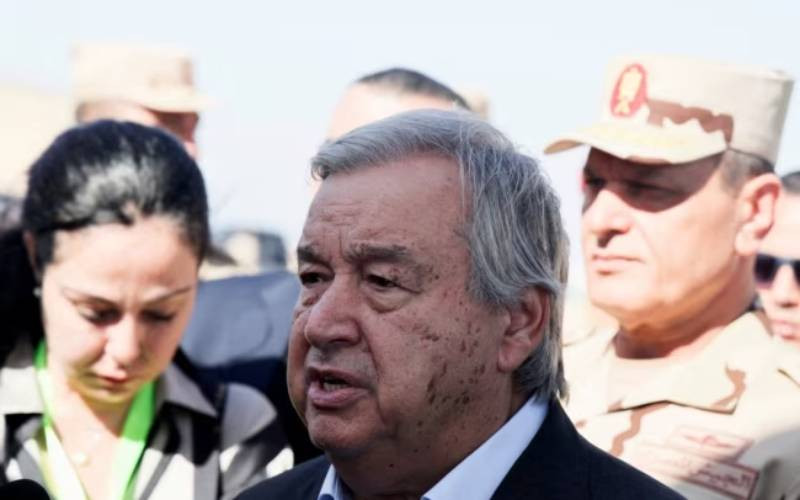×
The Standard e-Paper
Fearless, Trusted News

U.N. Secretary-General Antonio Guterres speaks to reporters after visiting the Rafah border crossing between Egypt and the Gaza Strip, Oct. 20, 2023. [Via VOA]
Israel expanded its military ground operation Friday night as the international community called for an immediate humanitarian truce and U.N. leaders warned that the humanitarian situation in the Gaza Strip was nearing total collapse.